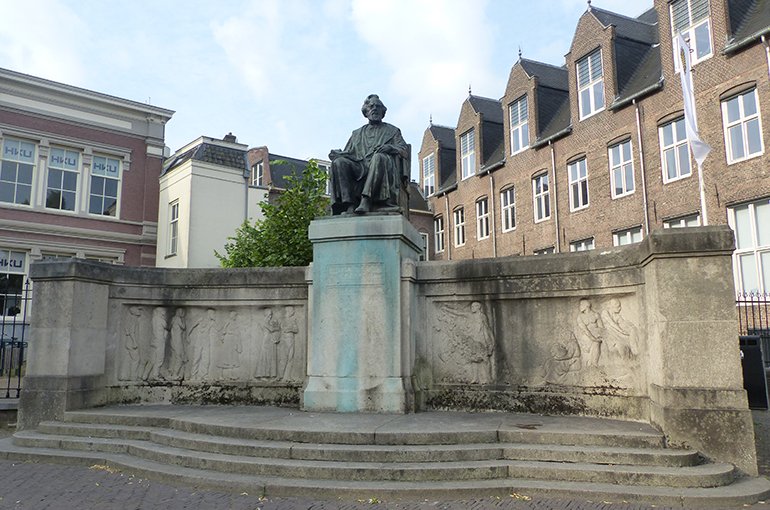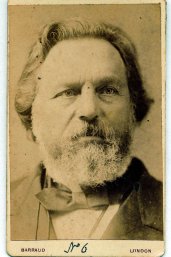Donders: the legend of a vain man
Blog: Dorsman dives into university history

These days, we no longer believe rankings are that important, but reputation was and is a part of science. Some of our predecessors were stars, national heroes and all of that without the social media. One of the highest achievers on that level was the ophtalmologist Frans Donders (1818-1889). An impressive figure with a head fit for Christ and wavy hair.
Benefactor of mankind
Who was this Donders really, who can be seen on his seat in the far corner of the Janskerkhof since 1921? Donders was a physiologist at the medical faculty and especially gained fame as an ophtalmologist. That is also what his reputation was built upon, although he also gained fame in other scientific fields. Radboud University even has a “Donders Institute for Brain, Cognition and Behaviour”.
But Donders simply was a master in prescribing the right pair of glasses in a time people who needed glasses went to smart salesmen on the market. With this, he gained a reputation of ‘benefactor of mankind’. And it only became bigger after the founding of his Netherlands Hospital for Necessitous Eye-Patients on the Wijde Begijnestraat, which he had the wealthy citizenry of Utrecht pay for. These days, the very fittingly-named Eye Hotel is located there.

Miraculous ophthalmology
It did not take long before stories of spectacular healings started going around. Pretending to be modest and in the background, he told in the magazine Eigen Haard: “I have heard the cheerings of mothers who had never before seen their children's loving gazes.” All of this finally gained mythical proportions.
In 1864, a bizarre story was told near Goes. A blacksmith's assistant had gotten a piece of iron in his eye, which was embedded so deeply that no-one could remove it. Desperate, he turned to Donders and his assistant Snellen. They could not help him either, they said, unless he agreed to be… hanged. As the blacksmith was in unbearable pain, he agreed to be hanged. “When his eyes had sufficiently bulged, one of the gentlemen removed the piece of iron from the eye while the other cut the fellow down, who then left the hanging chamber with joy after this very simple operation.”
Somewhat arrogant
How much of a public figure Donders became can be seen in the faits divers section in the daily newspapers, a section that could compete with the current gossip media. These would report on matters such as that he and his family had arrived at a guesthouse in Hilversum. The Tilburgsche Courant even reported Donders had a furuncle, a so-called ‘carbuncle’. But despite this unevenness, the image of him that slowly came about was that of the perfect human. The press published reports of foreign academic conferences Donders spoke at, not on his scientific achievements, but about the fame he gained there and the applause he received.

Foreign newspapers, which were then copied by their Dutch equivalents, describe his appearance: “rather tall, well built, he has a quick piercing black eye, a frank manner and a winning smile.”
That this can spoil the character will surprise no-one. The writer Potgieter, who was an admirer, had to conclude that “Donders is quite pedantic.” Some of the students thought he was an actor. Although opinions still vary. I know an ophtalmologist who has a little portrait of him on her desk to ask for support and advice every once in a while. And there are those who think he is overrated and was really a vain man.
Dorsman dives into university history
Out of the thousands of people who study and work at Utrecht University, fewer and fewer know anything about the history of this institution. We can do better than that. Leen Dorsman was a professor of University History until 1 August 2022. Each month on UU.nl, he describes something from the university’s long history that you would want to know or should know.

